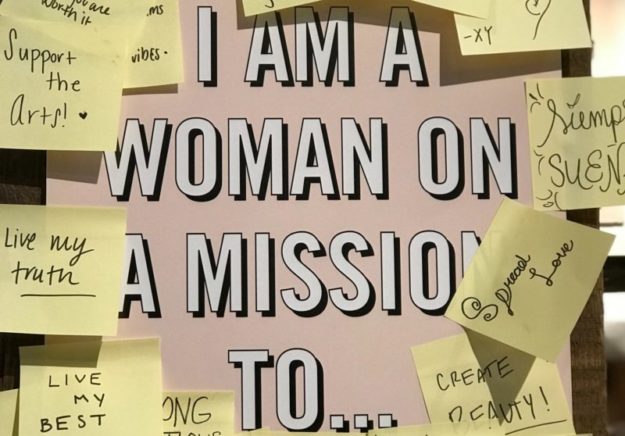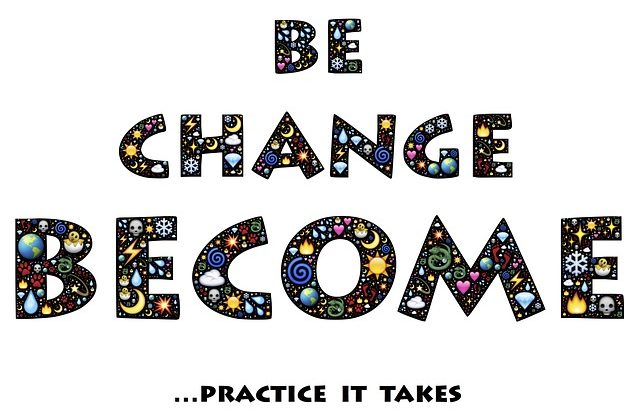For Feminism, Basically

My initial understanding of feminism crystallized one fall day in my junior year of high school, in 1968, when I met Anne Sexton on the back porch of our house in Hanover, New Hampshire. My father had invited Anne to read her poetry on the Dartmouth College campus (then all male). It was six months after she’d won her Pulitzer Prize (Live or Die) and eighteen months after he’d won his (Selected Poems, 1930-1965).
Glamorous and warm, Anne took our back-porch stairs like she owned them. In a straight sheath dress with a string of pearls around her neck, she looked like a poetic Jackie Kennedy. Her lips were painted deep red and she held a half-smoked cigarette between two fingers of her left hand. I had watched her on the lawn with a group of tweed-jacketed English professors circling her like stars around a literary sun. What struck me was her clear intellect as she held her own with the men—and her clear sexuality. She looked like she belonged in their world. I wanted that too. In truth, I was a confusing mix of hormones, desire, and bashfulness.
The women I grew up around in the 1950s and early 60s came in two forms. Like Sexton, there were “put together” women who donned makeup, dressed femininely, and polished their nails. They portrayed privilege and charm and easily navigated the male realms, especially the arts and culture. Some of my aunts were like that, and some of my parents’ friends. Gram was like that, too. When my grandfather died in 1951, Gram assumed the role of Chairman of the Board of the family company and became an executive overnight. She was sixty years old. I don’t think she ever questioned whether she had a right at the table.

The other kind of women around me were more like my mom. They shopped in blue jeans and sneakers, rode their bikes downtown, championed land conservation and pre-school for kids. As well educated, they joined political causes and worked to change big systems, mostly ones developed through the long arc of patriarchy. These were typically white, middle-class housewives—women for the Equal Pay Act who took to heart Betty Friedan’s The Feminine Mystique and financed Bella Abzug’s campaign for U.S. Representative. Too busy making phone calls to worry about how they looked, they brought their own privilege to the calls, while assuming the right to their voices and insisting those rights be ratified into law.
With such strong role models, along with the second wave women’s movement of the 1970s, I believed a woman’s place was wherever she chose it to be, though I hadn’t noticed that none of my role models actually worked at a long career. In our mostly white, 1950s ivy league town, every father was a breadwinner and most mothers stayed home, catering to the child-rearing and her husband’s career, while carving out time for good works. In our household, we gave over family dinners to my father’s many fans. If he was absorbed in writing, all bets were off for when we’d have supper. Mom gave up her beloved career teaching fourth graders in that exchange.

While my father expected my mother to occupy a traditional role at home, he actively championed feminist poets like Denise Levertov, Carolyn Kizer, and Adrienne Rich. So, too, Anne Sexton and Maxine Kumin, who he shared a poetry workshop with. He referred women to his editors and advocated for fellowships and grants they applied for. Like Marianne Moore, Elizabeth Bishop, and May Sarton in prior decades, he knew each of these writers personally and corresponded regularly. He pitched his own poems equally to Harriet Monroe for her new and literary Poetry Magazine, which paid fifty cents per line, while also to Elizabeth Hoffman, then poetry editor at mainstream The Ladies Home Journal, which paid ten dollars a line.
In 1986, when I was thirty-six, I founded my own organizational development consulting company on the heels of having obtained my MBA. I saw quickly just how hard women had to work to get ahead. Men occupied the board rooms and filled the corner suites and I had to find my way in rooms full of men. A male colleague on a hospital board I served on asserted my gender would be an impediment in the male-dominated field of consulting. I responded by setting my rates as high as men did and, as an emerging leader, accepted invitations to sit on numerous boards.
Once, a male colleague who’d become a professional friend pinned me against the wall of an underground conference room after an evening meeting. Pressing his lips to my mouth, he told me he loved me. Huh? That a good guy I genuinely liked could be a violator of my personal space should not have come as a surprise. My father had violated, too. In his congratulatory note to Anne Sexton after winning her Pulitzer, he wrote: “Congratulations on your Pulitzer. Now we shall lie together on the page for eternity.” Were all men this way?
Through thirty years I was fortunate to select and work with hundreds of male executives who took women seriously. They wanted us on their management teams. They cared about how they were perceived by the women around them. They needed to learn how to share power with equally smart and assertive women. My understanding of feminism and the influence women can exert deepened through intimate conversations in corner suites with men who still held the power. Inside their systems I would gain their trust by getting them to talk about their own vulnerabilities while paying attention to how they made me feel, combined with what their staffs said about them. Slowly, I learned how to translate the meaning of these collective impressions in ways the men could hear. Then, they could take that fuller understanding into their relationships. I doubt they would have heard the message without that trust. The best of them learned to seek their own feedback, shifted their beliefs, changed behavior, and enacted new policy in real time. From the corner suite, I saw how any significant and lasting change had to galvanize the power grid. Doing the “right thing” could bring small adjustments; small “uprisings” of staff groups could gain a point or two. But moving the culture of a system—the hearts and minds of those within it—took both upward pressure and changing the way men at the top thought and acted. This was transformational change.

In the early years of my career, I was alarmed by how frequently I’d hear the sole other woman in the room (usually carrying a title of executive assistant) propose a reasonable solution to a business problem two or three times before a man in the room would acknowledge her. I would point that out to the team and create space for them to wrestle with it. Even today I see women’s ideas dismissed in meetings or appropriated by a man, then lauded for the idea by other men. We may have blown the lid off outright and obvious sexual power violations and we may be more open to talking about micro-aggressions and unconscious biases, but I don’t know a woman who will ever not notice these common slights. Sometimes I speak up about them in the moment; sometimes I don’t. As Soraya Chemaly wrote in her 2018 article in Dame, “What Men Need to Know about Sexist Microaggressions,” the problem with micro-aggressions is that each is often small and hardly warrants our energy to fight them, but over time they add up. Studies show, she wrote, that “in 75 percent of cases of everyday discrimination or harassment women think [italics mine] about confronting their harasser, but only do so in 40 percent of cases.” We pick our battles. But, why is it left to us to regulate the behavior of our male counterparts? Shouldn’t they have figured this out by now?
I see progress today in dads fully engaged in the upbringing of their children; women holding leadership positions in traditionally male fields; women defining their own sexuality and identity and men supporting their sisters in doing so; children and teenagers who understand the meaning of consent; women in all their beauty, shapes, colors, and sizes, individualizing their aspirations for career and family and ways of loving. And yet, women still make $.79 for every dollar a man makes and twenty percent adds up to a lot over a lifetime. Even well-intended CEOs and boards find it hard to get at that difference meaningfully and quickly.
I listen to the new voices of feminism, from Chemaly to AOC to Roxane Gay, to Jessica Valenti and Lindy West. I champion these powerful, passionate women who cast their own bright lights on injustice. I only wish it weren’t necessary. Still, I have hope going forward—from tee shirts worn by little girls claiming “Beautiful Rebel” to a recent podcast in which Mira Jacob told the story of her young son reading her new graphic memoir, Good Talk. In it, she’d created a panel depicting her naked body during a dating phase in college. To explain to him why it was included, she said it was for all the young brown girls like her who have bodies they may want to use some day.
“Do you understand?” she asked her son.
His thoughtful reply came quickly: “For feminism, basically.”
If Anne Sexton crystalized my early view of feminism, bolstered by my mother and her friends, my aunts, and my grandmother, it was an easy and idealized view, a view from privilege. And it was too simplistic for what I witnessed both in large companies and small, in communities, and in families. Today’s young people have so many role models of feminism, so many women of all walks calling out for equality—from the streets, the halls of Congress, from their written works, to their workplaces. Equality will take all of us ensuring full rights and healthy practices. I hope the objectives of these younger women are attained as we welcome their voices in the vast and beautiful sea of sisterhood.
This guest post was authored by Gretchen Eberhart Cherington

Gretchen is the author of Poetic License: A Memoir (She Writes Press). She grew up in a household that―thanks to her Pulitzer Prize–winning father, the poet Richard Eberhart―was populated by many of the most revered poets and writers of the twentieth century, from Robert Frost to James Dickey. She’s spent her adult life advising top executives in changing their companies and themselves. Her essays have been published in Crack The Spine, Bloodroot Literary Magazine, and Yankee Magazine, among other journals and newspapers, and her essay “Maine Roustabout” was nominated for a 2012 Pushcart Prize. Cherington is a leader in her community and has served on twenty boards. Passionate about her family and friends, she most enjoys spending time with them at home or in wild places around the world. Gretchen splits her time between Plainfield, New Hampshire, and Brooksville, Maine. Learn more at https://www.gretchencherington.com.

